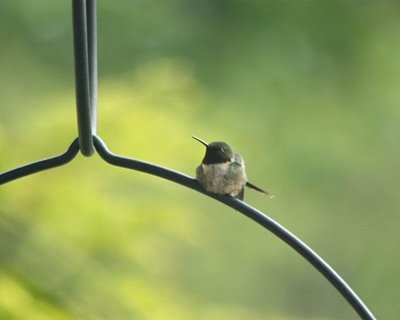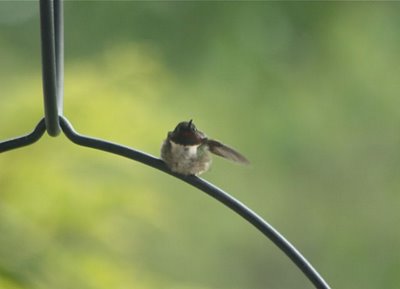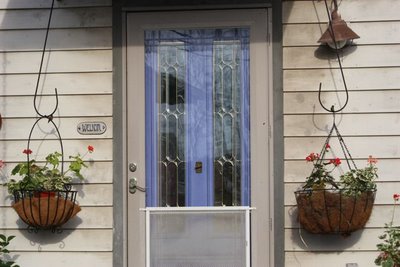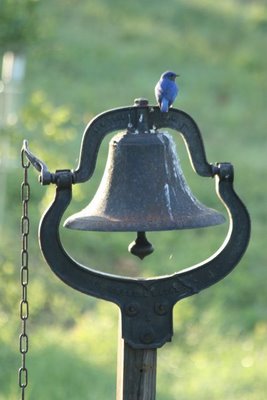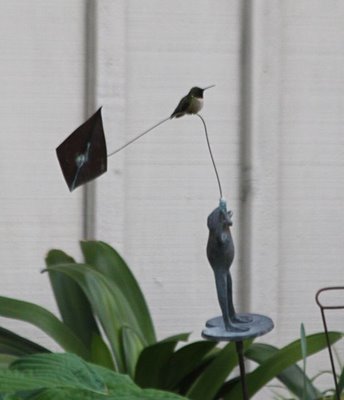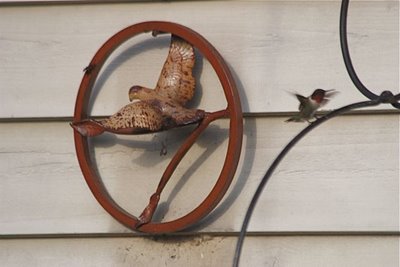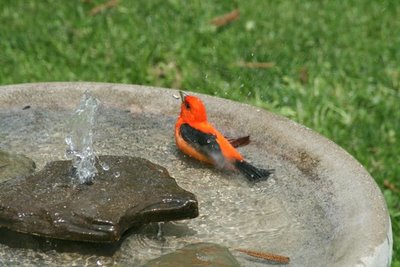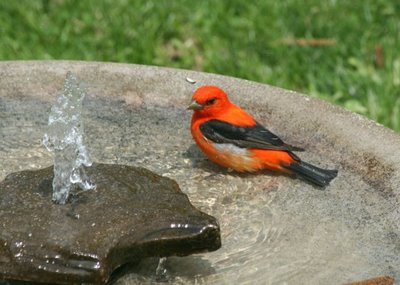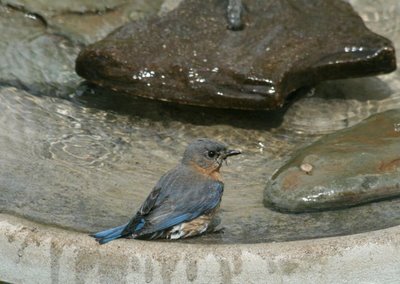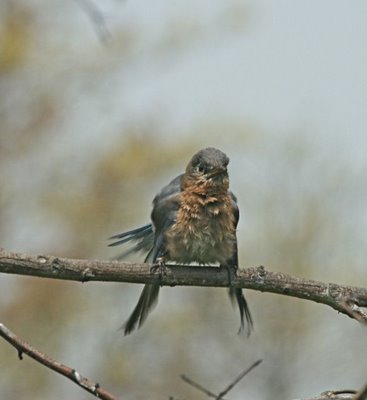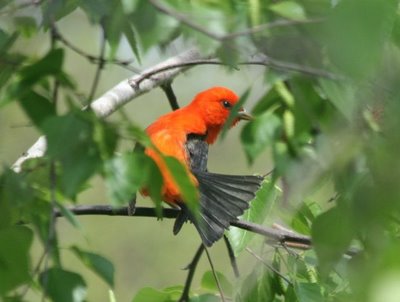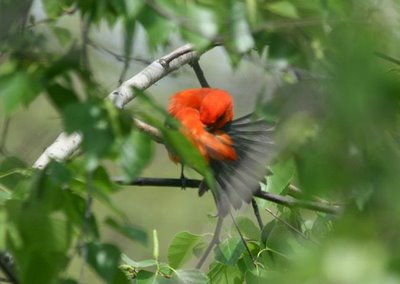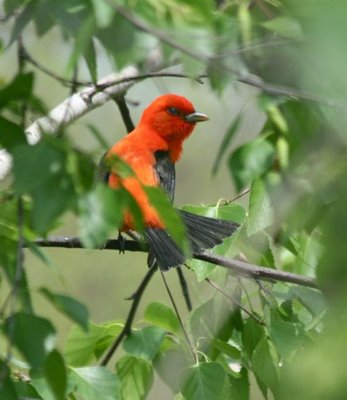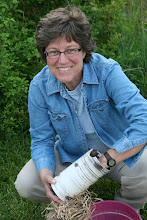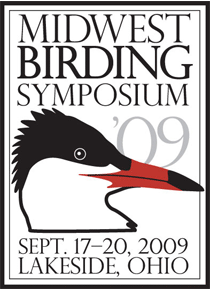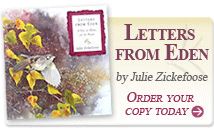Amidst all the other things that happen in spring, the lawn-mowing and the softball, the graduation ceremonies, the bird festivals, speaking engagements, sinus infections (somewhat better, thanks) and the intensive gardening, there's box-checking my bluebirds. I'll admit it--I'm behind. Behinder than I've ever been. Cough, snuffle. This is the first spring that I haven't managed to hit each box once a week. So the babies get old, they get away from me. I try to change every nest when the young hit one week of age, replacing the (usually parasite-infested) nest with fresh clean dry grass. I'm after blowflies, blood-sucking larvae of bluebottle flies that hide deep in the nest lining and wriggle up at night to drain my baby bluebirds of their life
force. During the day they retreat into the nest, so nobody can see them to preen them off. Eeeeyew. You can see the gray larvae in the lower third of the nest, and the yuccky wet layer of blowfly- processed bluebird blood below that. After awhile you can smell them as soon as you open the box, and you know when the nest needs to be changed.
.

This is a bad infestation, 80 or more. I put the infested nests in a pail and take them to the driveway cement to count larvae.
.

I've seen a load like this contribute to the death of broods in the kind of cold, rainy weather we've been enduring, when the parents can't find enough food to offset the blood loss the young birds suffer. But you can't use pesticides around baby birds, whose tissue-thin skin and high metabolisms make them extremely vulnerable to poisons as seemingly innocuous as pyrethrins and rotenones. I won't even talk about bluebirders who swear by Sevin dust. They're out there, merrily dusting their boxes with pesticides, saying it's the only way to go. And I think that's a terrible thing to contemplate, much less to do.
In one of our organic bluebird nest checks, Phoebe volunteered to hold the babies while I fashioned a new nest for them.

Everything went pretty well until the baby bluebirds decided to find a better place to hide. They're only about 12 days old, not ready to fledge, but they're getting fledgy. This is the last day we could handle them safely without their trying to exit the box prematurely. Try this on Day 13 and you'd have babies popping around like popcorn, calling frantically and refusing to
stay in the box. Times like that, you have to stuff a sock in the box entry hole, give them a half hour to settle down, and then quietly remove the sock. But sometimes even that won't work, and the babies spill out and hop around on the ground, where their beleaguered parents do their best to feed and protect them. You don't want to mess with bluebirds after Day 12.
.

Wuh-oh. They're starting to scatter. Wait. There were five before. Phoebe began giggling helplessly as a clammy little bluebird made its scritchy way up the sleeve of her hoodie.

I retrieved it from its nice warm lair and replaced it in the new nest.

You little goofball of a baby bluebird. Pretty good thinking, though, to hide like that. Notice how Chet Baker patrols around without bothering anybody.

I know. It's not a real Chetfix. But I figure even his receding form is better than no Chet at all.
Today's hiatus is going to be happening more in June. There will be times when I can't post. I'll do my best, but don't be surprised if there are pauses. Life's running me.
Labels: eastern bluebird, nest box maintenance, nest changes, premature fledging in bluebirds

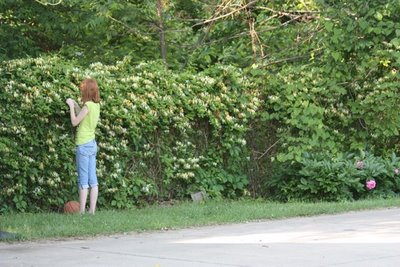 Phoebe drowning in honeysuckle. Photo by her daddy, Bill Thompson III.
Phoebe drowning in honeysuckle. Photo by her daddy, Bill Thompson III.
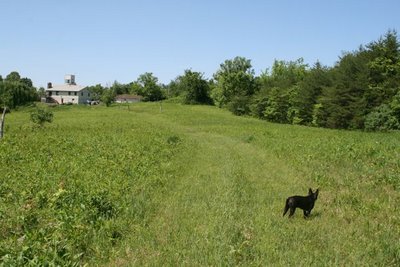
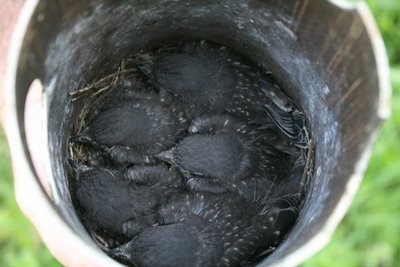
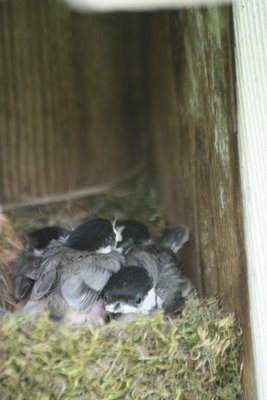
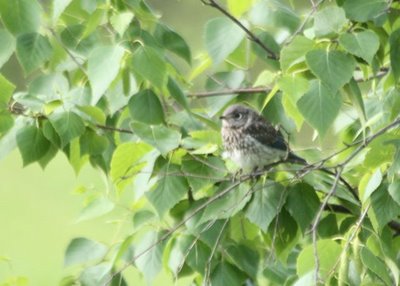
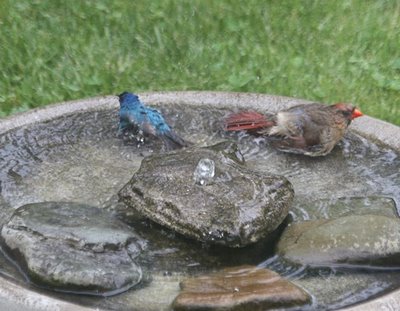
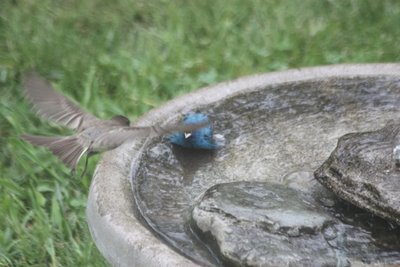
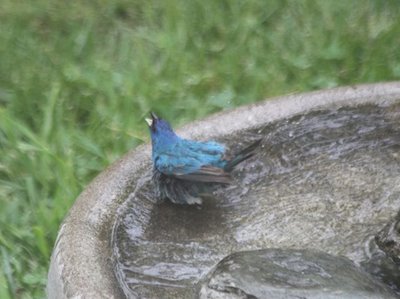 June is overwhelming. I love it so much. I just wish I could take some of this bounty and spread it out through the rest of the year, that's all. I wish June lasted three or four months, so I could take it all in. But everyone's in a hurry, everyone's nesting, everyone's blooming, everyone's singing, and I can't keep up. I just grab little bouquets as I go.
June is overwhelming. I love it so much. I just wish I could take some of this bounty and spread it out through the rest of the year, that's all. I wish June lasted three or four months, so I could take it all in. But everyone's in a hurry, everyone's nesting, everyone's blooming, everyone's singing, and I can't keep up. I just grab little bouquets as I go.
